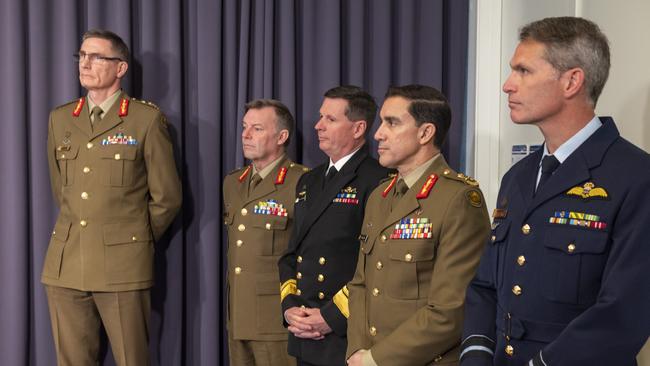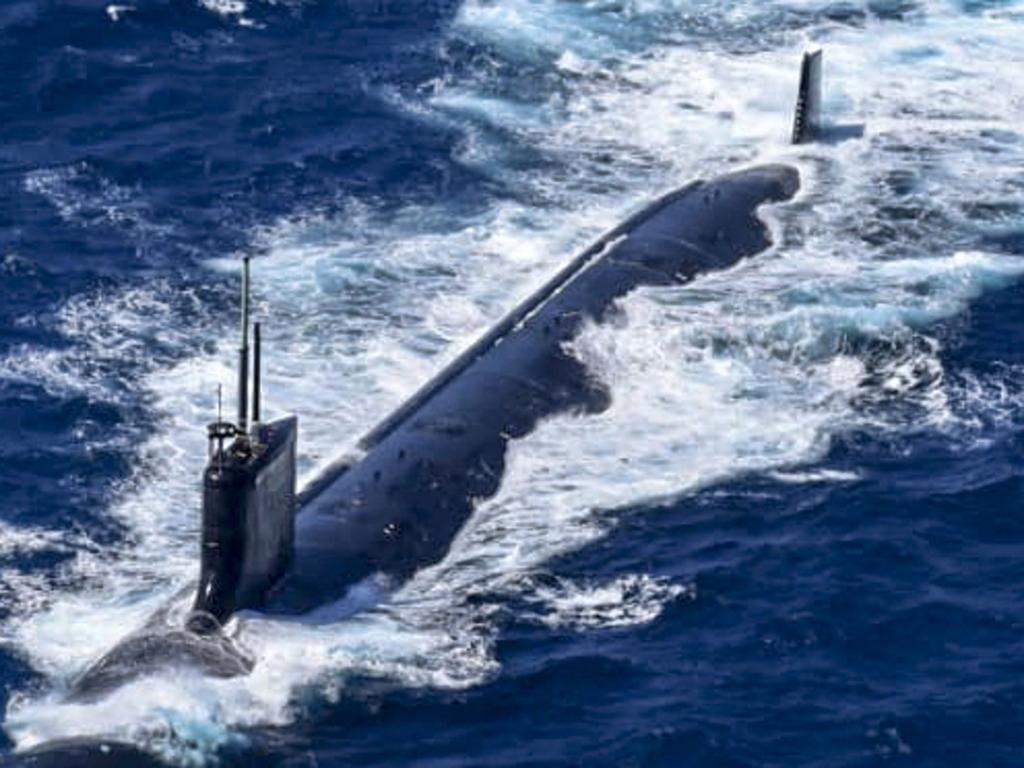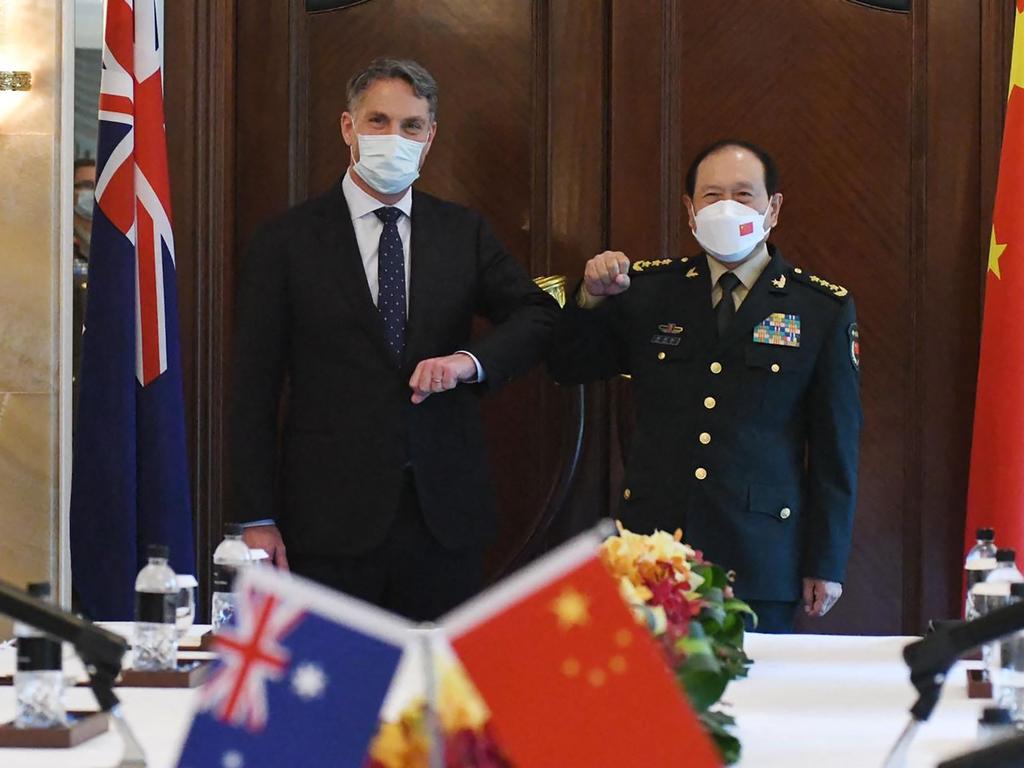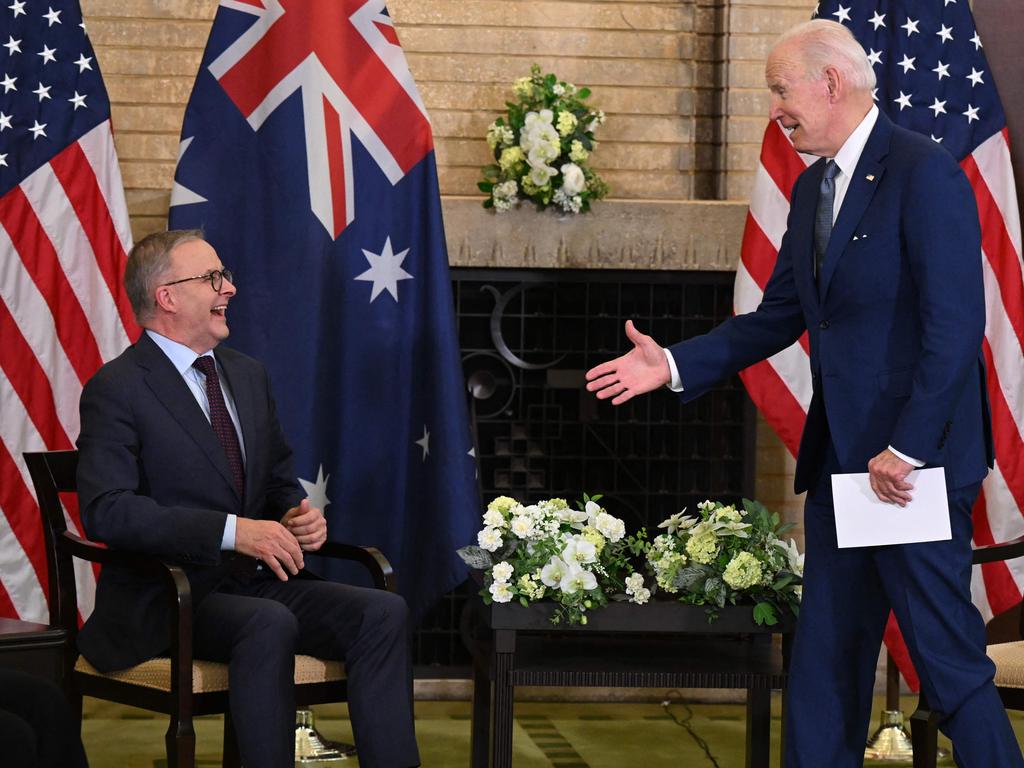
It’s tempting to think that’s what Defence Minister Richard Marles has done by reappointing the Chief of the Defence Force, Angus Campbell, his deputy, David Johnston, and the Chief of Joint Operations, Greg Bilton, for another two years.
Before that, the government kept the secretary of the Defence Department, Greg Moriarty, in place.
These men are all fine Australians, good, brave, competent, etc. But let’s be clear: they have together overseen a dismal, wretched, useless, ineffective performance in delivering actual defence capability.
Marles might feel the team has potential that a new coach can bring out. Collingwood scored the wooden spoon in 1976. With a new coach, it made the grand final the next year.
Anthony Albanese and Marles are determined to produce powerful new military capabilities in the next five to 10 years. Marles made clear at his press conference that when the joint group studying which nuclear-powered submarine option Australia will go with under AUKUS reports next March, the government will want to announce three separate decisions simultaneously.
They are: which nuclear-powered sub we acquire; what timeframe we get them in; and what capability gap that opens up and how we fill that gap.
If Albanese and Marles can do that by next March, they will, in a defence context, have moved at warp speed, and will deserve the thanks of a grateful nation.
One way to bridge a capability gap would be by building a new conventional submarine, a variation, with as little change as possible, on the existing Collins subs. Working out how that could be done quickly requires a substantial study of its own.
The navy has made it clear it hates that idea – it’s reliably opposed to obvious and achievable options. Marles will need to ensure advice he gets on a conventional sub is rigorous, not pre-cooked, that he doesn’t just get snowed by Defence.
Acquiring anything quickly will require a big change in Defence culture. It’s deeply unclear to me that the men who have overseen the previous record of dysfunction, paralysis, and excruciating slowness can credibly implement, much less lead, that change.
This is the leadership of the organisation that took two years to work out that Lockheed Martin and Raytheon should be the government’s main industry partners in developing a sovereign guided weapons industry.
Yet those two companies already supply the vast majority of Australian missiles and have big operations here.
So that’s two wasted years Australian never gets back, two years longer in moving to our own missile manufacturing capacity.
This is the team that has overseen the insanity of naval projects growing topsy-turvy in design with endless special features involving limitless extra costs and delays.
Albanese and Marles believe the blame for this lies with previous governments. That’s mostly true, but the Australian Defence Organisation bears responsibility too.
In the American Civil War, Abraham Lincoln realised that to preserve the Union, he would have to destroy the Confederate army. His generals, one after another, were reluctant to do that because they couldn’t accept how radically their nation’s circumstances had changed.
They were all good men. Lincoln ruthlessly sacked them one after another until he found Ulysses S. Grant, who would actually carry out his orders with grim and relentless determination.








Imagine if your football team won the wooden spoon 10 years in a row. The club passes into new ownership. The new owner declares: we’re going to totally change all this – by sticking with exactly the same players who performed so wretchedly for so long!